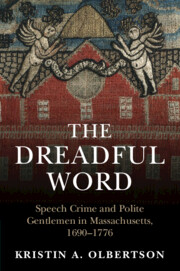7 - Respectability
Published online by Cambridge University Press: 03 March 2022
Summary
Throughout the war and beyond, lawmakers largely abandoned their previous efforts to legislate polite speech, and instead crafted statutes designed to criminalize politically disloyal speech and reward loyal speech. General sessions courts, too, seem to have concentrated their efforts on subversive speech, while at the same time adopting a more expansive definition of impolite speakers and a more casual attitude toward impolite speech in general. Meanwhile, some evidence suggests that elite attempts to maintain a monopoly over their roles as credible purveyors of news about publicly significant events were undermined, as Americans questioned and reformulated the bonds between information and personal identity. Amid all this uncertainty about speech and status, a new ethos of respectability emerged as a set of values and a guide to behavior for those wishing to distinguish themselves from the lower orders. Indeed, cultural concerns about speech, its relationship to social order, and how best to regulate it have never totally vanished; they merely transformed and emerged in different incarnations that tend to reflect and reinforce existing structures of power and status in society.
- Type
- Chapter
- Information
- The Dreadful WordSpeech Crime and Polite Gentlemen in Massachusetts, 1690–1776, pp. 270 - 286Publisher: Cambridge University PressPrint publication year: 2022



